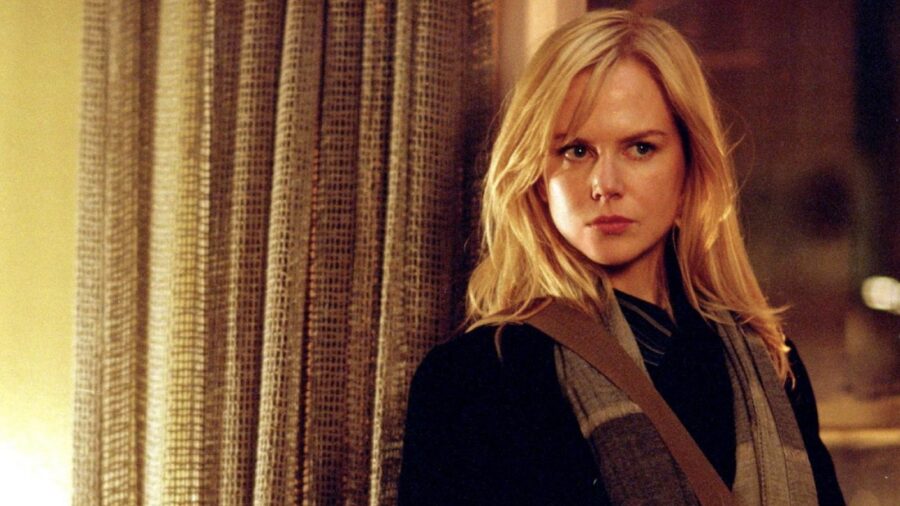Nail-Biting Suspense Thriller On Netflix Features All-Timer Nicole Kidman Role

Sydney Pollack’s final film, The Interpreter, is a gripping political thriller starring Nicole Kidman in one of the Australian actress’s best roles. The film, which is currently streaming on Netflix, follows Kidman’s Silvia Broome, a United Nations interpreter, and Sean Penn’s Tobin Keller, a Secret Service agent.
The pair find themselves wrapped up in a dangerous assassination plot. The two Hollywood A-listers are joined by a stellar cast, including Catherine Keener and Jesper Christensen.
The Interpreter, starring Nicole Kidman, is streaming on Netflix.
Released in 2005, The Interpreter made history as the first film to be shot inside the United Nations Headquarters. It was also director Sydney Pollack’s final feature film before his passing in 2008. Pollack was also known for directing the now classic features Tootsie, starring Dustin Hoffman, and Out of Africa, starring Meryl Streep and Robert Redford.
The Interpreter is set in the fictional Southern African country of Matobo, where a brutal dictator, President Edmond Zuwanie, has been responsible for ethnic cleansing. The story begins when Nicole Kidman’s character overhears a conversation about an assassination plot against Zuwanie. This discovery sets off a series of events that involve a secret service investigation led by Tobin Keller, and ultimately reveals intense political intrigue and moral dilemmas.
The film introduced the fictional African state of Matobo, accompanied by a constructed language called Ku, which was invented by Said el-Gheithy, the director of the Centre for African Language Learning in London.

The Interpreter was filmed primarily in New York City, with the opening sequence shot in Mozambique. It was the first film granted permission to shoot inside the United Nations Headquarters, though that wasn’t an easy feat for the producers to achieve.
The film initially faced rejection but later secured approval to film at the UN thanks to direct negotiations with then-Secretary-General Kofi Annan. Filming was conducted during weekends, public holidays, or nighttime to avoid disrupting the UN’s regular operations.
These parallels to Zimbabwe created controversy in the country after the film’s release, with government officials accusing The Interpreter of promoting anti-government propaganda.
The film introduced the fictional African state of Matobo, accompanied by a constructed language called Ku, which was invented by Said el-Gheithy, the director of the Centre for African Language Learning in London.
This fictional country, Matobo, bears some parallels to Zimbabwe, where the real Matobo National Park is located. Some aspects of The Interpreter, such as the character of President Zuwanie, have been compared to Zimbabwe’s former President Robert Mugabe.

These parallels to Zimbabwe created controversy in the country after the film’s release, with government officials accusing The Interpreter of promoting anti-government propaganda. The country’s Minister of Information and Publicity and the chairman of the Zimbabwean state’s Media and Information Commission believed that the film portrayed thinly veiled caricatures of Zimbabwe and President Robert Mugabe, seeing the movie as part of an international smear campaign against the Mugabe regime.
Despite the controversy, the Zimbabwe Media Censorship Board approved the film for theatrical and video release.
The Interpreter received a worldwide release in April 2005 and was met with mixed reviews from critics. On Rotten Tomatoes, it holds a 58 percent approval rating, with the website’s consensus stating that the thriller itself is polished, but the plot features a plethora of implausibilities. Metacritic, on the other hand, was kinder to the film and gave the feature a score of 62 out of 100, indicating generally favorable reviews.
While the overall consensus of the two film aggregation sites marked The Interpreter with mediocre scores, some critics thoroughly enjoyed the feature and stood up for the film’s faults. Kirk Honeycutt of The Hollywood Reporter praised the film, calling it “smart,” while Todd McCarthy of Variety found it “coolly absorbing.” The Los Angeles Film Critics Association also recognized Catherine Keener’s performance in the movie, awarding her the title of Best Supporting Actress.

At the box office, The Interpreter performed well, grossing $72.7 million in the United States and Canada and $90.2 million in other territories, bringing its worldwide total to $162.9 million. It opened at number one during its debut weekend and maintained a presence in the top ten for six weeks. Overall, it doubled its $80 million budget and achieved status as a financially successful blockbuster.
The Interpreter is a political thriller that captivates its audience with a plot involving international intrigue and moral complexities. Its unique setting within the United Nations Headquarters, mixed reviews from critics, and controversial interpretations make it a notable film in both the political thriller genre and Hollywood’s history. Whether you view it as a suspenseful thriller, a critique of political leadership, or a testament to people’s creative abilities to invent a new language and culture for the sake of art, The Interpreter is a thought-provoking cinematic experience.












